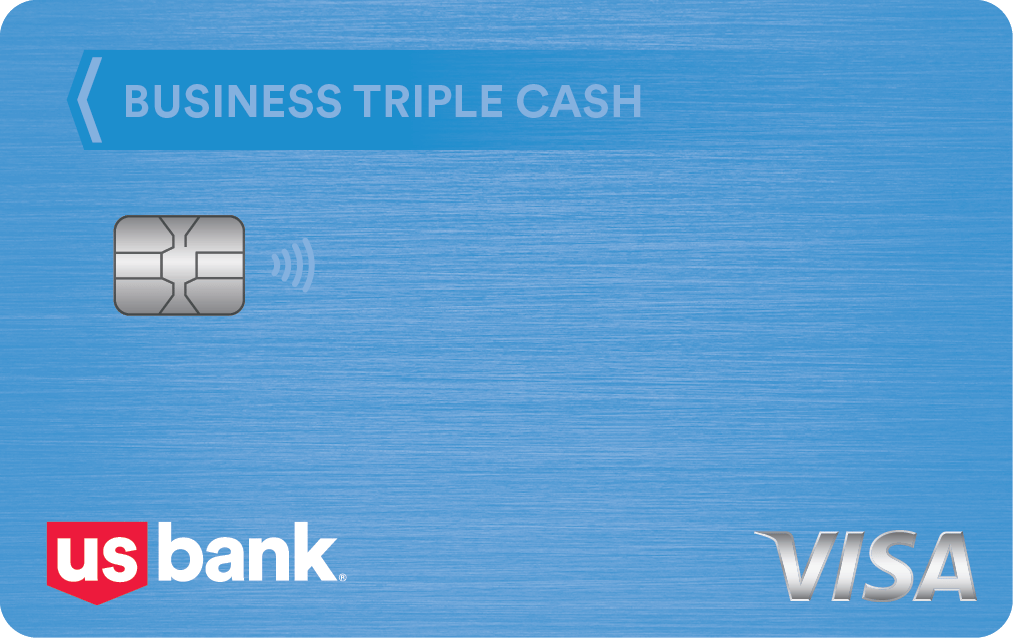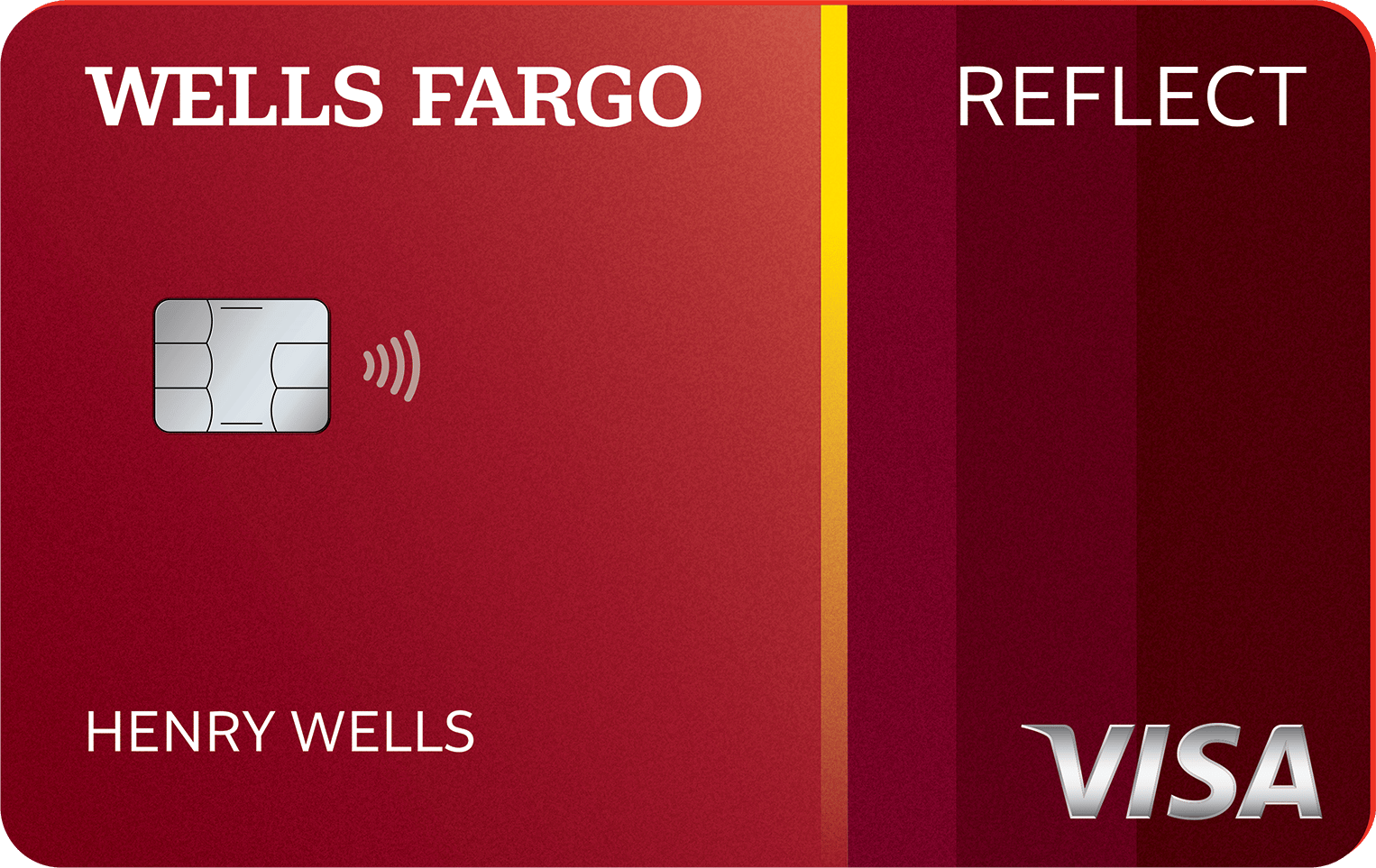Best Business Credit Cards for Balance Transfers of 2026
Many, or all, of the products featured on this page are from our advertising partners who compensate us when you take certain actions on our website or click to take an action on their website. However, this does not influence our evaluations. Our opinions are our own. Here is a list of our partners and here's how we make money.
A 0% balance transfer period can help your business save on interest, free up cash and pay down debt faster. Our writers and editors reviewed the available options for business owners. Our top pick is the U.S. Bank Triple Cash Rewards Visa® Business Card.
The U.S. Bank Triple Cash Rewards Visa® Business Card has an appealing overall package. That starts with its intro APR. Here's the deal: 0% intro APR on Purchases and Balance Transfers for 12 billing cycles, and then the ongoing APR of 17.24%-26.24% Variable APR.
On top of that, you'll get a solid welcome offer and uncapped bonus category rewards. Simply put, this is one of best cash-back business credit cards around.
 Why trust NerdWallet
Why trust NerdWallet
250+ small-business products reviewed and rated by our team of experts.
80+ years of combined experience covering small business and personal finance.
Objective comprehensive business credit card ratings rubric (Methodology).
NerdWallet's business credit card content, including our ratings, reviews and recommendations, is overseen by a team of writers and editors who specialize in business credit cards. Their work has appeared in The Associated Press, Washington Post, MarketWatch, Nasdaq, Entrepreneur, ABC News, MSN and other national and local media outlets. Each writer and editor follows NerdWallet's strict editorial guidelines to ensure fairness and accuracy in our coverage. We independently evaluate and rate dozens of small-business credit cards, scoring them on fees, rewards rates, bonus offers and other features to help you choose the best business card for your company.
How we chose the best balance transfer business credit card
NerdWallet's editorial team rates business credit cards on their overall value. We consider factors like fees, rewards, eligibility criteria and other noteworthy perks.
Our writers and editors monitor 70+ business cards. To find the best balance transfer option among them, we looked at the following:
Key features for balance transfer business cards
🤓 How long is the intro APR period? We only considered cards with 0% intro APRs for balance transfers, with a period of a year or longer ideal.
🤓 How long do you have to transfer a balance? Even if an intro APR period lasts a year, you may not have that whole time to take advantage of it. Odds are, if you’re opening a balance transfer card, you already have the debt you plan to move. But extra flexibility is appreciated.
🤓 How much is the balance transfer fee? Most card issuers charge you to transfer a balance. This is typically either a percentage of the balance or a flat fee, whichever is more. The smaller the fee, the better.
🤓 What other benefits does the card offer? Balance transfer cards serve a distinct purpose. Still, it’s a plus when they include features like ongoing cash back that ensure you’ll use the card once its intro APR period ends.
What’s the best balance transfer business credit card?
The U.S. Bank Triple Cash Rewards Visa® Business Card is our pick for best balance transfer business credit card. Its key balance transfer features:
- Intro APR length: 12 billing cycles.
- Ongoing variable APR: 17.24%-26.24%.
- Balance transfer fee: Either 5% of the amount of each transfer or $5 minimum, whichever is greater.
- Time to transfer balance: 30 days.
Evaluating it strictly as a balance transfer card, there are plusses and minuses. But the math changes if you look at the card overall. Here are the key points.
The length is competitive
Twelve months isn't the longest term we've seen — nor is it the longest U.S. Bank offers. (The bank introduced a card with an intro period of up to 18 months in February 2026. "Up to" are the key words. You need to apply in-branch to get that offer. More details here .)
Still, 12 months matches the industry standard. And the ongoing APR range is reasonable.
The transfer fee, less so
You have to pay $5 or 5% of each balance transferred, whichever is greater. Almost all issuers charge such fees, but 5% is more than some providers. It's also more than what U.S. Bank has charged in the past. (Prior to July 2024, the transfer fee was 3%.)
For instance, let’s say you transferred a $5,000 balance. With a 5% charge, you’d end up owing a $250 fee. If that rate was still 3%, you’d pay $100 less.
It lacks a long transfer runway
You have just 30 days after account opening to take advantage of that intro offer. That's one-third the time of other cards, like the PNC Visa® Business Credit Card.
That card has no ongoing rewards, though. That's what ultimately puts the U.S. Bank Triple Cash Rewards Visa® Business Card over the top.
The other perks are great
If you’re going to jump through the hoops of getting a new business credit card, it’s nice to have a reason to keep using it beyond tapping into extra capital.
This card offers that incentive: Earn 3% cash back on eligible purchases at gas and EV charging stations (transactions of $200 or less)*, office supply stores, cell phone service providers and restaurants (*excludes discount stores/supercenters and wholesale clubs). Earn 1% cash back on all other eligible purchases. Earn 5% cash back on prepaid hotels and car rentals booked directly in the Travel Center when using your card.
There's no limit on that cash back. That makes this card a lucrative option if your spending aligns with those categories. There's a good welcome bonus, too: Earn $750 in cash back. Just spend $6,000 on the Account Owner's card in the first 180 days of opening your account. Keep in mind that transferred balances don't count toward that spending requirement.
What's new with balance transfer business cards?
February 2026:
- U.S. Bank Business Platinum Card. We previously included this card in our analysis. It's no longer available. U.S. Bank effectively replaced it with the U.S. Bank Business Shield™ Visa® Card. That card has an extra-long intro APR period — but only if you apply in-branch.
November 2025:
- Columbia Bank Zero+ Business Card. Columbia Bank refreshed its business card lineup. The Columbia Bank Business Card is no longer available. You can still get an 18-month 0% intro APR offer on balance transfers with the issuer's new travel rewards card.
September 2025:
- Edward Jones Business Plus Mastercard®. We previously included this card below. But Edward Jones redirected the webpage with its balance transfer info. The new landing page does not include this offer. The card's issuer, Elan Financial Services, did not respond to an email asking for clarification. We've removed this card as a result.
- Umpqua Bank Visa Business Card. Umpqua's owner, Columbia Banking System Inc., rebranded the institution as "Columbia Bank" in July 2025. It still offers an extra-long 18-month 0% intro APR period on balance transfers. It just goes by a different name (the Columbia Bank Business Card).
- Huntington Bank Voice Business Credit Card. We added this card to our analysis.
May 2025:
- U.S. Bank Triple Cash Rewards Visa® Business Card and U.S. Bank Business Platinum Card. After striking balance transfers from their intro APR offers in July 2024, U.S. Bank reintroduced this feature on multiple cards in May 2025. The U.S. Bank Triple Cash Rewards Visa® Business Card is our new top pick.
Other balance transfer credit cards we considered
The PNC Visa® Business Credit Card was our top choice in previous versions of this guide. But it has no ongoing rewards and a more limited footprint than U.S. Bank. (Only existing PNC banking customers can apply online.)
Key balance transfer features:
- Intro APR length: 13 months.
- Ongoing variable APR: 16.24% - 26.24%.
- Balance transfer fee: Greater of $5 or 5% of the transfer.
- Time to transfer balance: 90 days.
The Huntington Bank Voice Business Credit Card is a strong option if you live in the bank's service area. That's 13 states, mostly in the Midwest and Southeast U.S.
You choose a 4% cash-back category from a list of 10. Those include rare options for business cards, like warehouse stores (e.g., Costco or Walmart). You earn that rate on up to $7,000 spent per quarter, or $28,000 annually (1% thereafter). That cap is competitive. But it falls short of the U.S. Bank Triple Cash Rewards Visa® Business Card's unlimited cash back.
Key balance transfer features:
- Intro APR length: 12 months.
- Ongoing variable APR: 14.74% - 25.74%.
- Balance transfer fee: Greater of $10 or 3% of the transfer.
- Time to transfer balance: 90 days.
U.S. Bank effectively replaced the U.S. Bank Business Platinum Card with the U.S. Bank Business Shield™ Visa® Card in early 2026. At one point, the Platinum had an 18-month intro APR period. U.S. Bank brought that back with the Business Shield, but with a catch. You have to apply in-branch to get it. Online applicants get a 12-month period.
Key balance transfer features:
- Intro APR length: 12 months (online)/18 months (in-branch).
- Ongoing variable APR: 16.24% - 25.24%.
- Balance transfer fee: Greater of $5 or 5% of the transfer.
- Time to transfer balance: 30 days.
You have to be a State Farm customer to get the State Farm Business Cash Rewards Visa Signature® Card. If that's you, this card is a solid choice. You get 3% cash back on State Farm insurance premiums (up to $4,000) annually.
U.S. Bank issues this card, and the rest of the rewards mirror the U.S. Bank Triple Cash Rewards Visa Business Card. You get the same 3% cash back on gas stations and electric vehicle charging stations (transactions under $200), cell phone service providers, office supply stores and dining.
Key balance transfer features:
- Intro APR length: 12 months.
- Ongoing variable APR: 17.76% - 26.74%.
- Balance transfer fee: Greater of $5 or 3% of the transfer.
- Time to transfer balance: 60 days.
Some smaller banks and credit unions offer business credit cards with 0% APR balance transfer periods as well. However, opening one often requires a branch visit.
The Columbia Bank Business Zero+ Card stands out among such options. It has a 0% APR on balance transfers for a whopping 18 months (variable APR of 16.49% to 25.49% thereafter). There’s a 3% or $5 fee for balance transfers, whichever is greater. Columbia Bank has branches in Arizona, California, Colorado, Idaho, Nevada, Oregon, Utah and Washington. Elan Financial Services issues this card.
Other regional options pair 12-month intro APRs with potentially low ongoing rates. The M&T Bank Business Credit Card has an ongoing APR of 14.24% and 21.24% … Entrepreneurs in and around Hollywood can look at the Visa Platinum Business Card from First Entertainment Credit Union, with its ongoing APR of 14.74% – 22.40% ... First Citizens Bank’s Low-Interest Business credit card mostly lives up to its name. Its ongoing APR of 13.74% to 22.74%.
Note that we didn’t consider cards that don't charge balance transfer fees, but also don't have a 0% intro period. For instance, the Capital One Spark Cash Select. (New cardholders aren't immediately eligible for transfers anyway.)
Ditto cards like the Security Service Power Business MasterCard® that offer excellent APRs on balance transfers (currently 7.90%) — just not 0% ones. Such cards could save you money on higher-interest debt. But not as much as those that slice your APR to zero.
What is a balance transfer business credit card?
A balance transfer business credit card is a debt-consolidation tool. These cards allow business owners to combine debt — ideally at a lower interest rate — and repay it over time.
Balance transfer cards offer convenience. You may be able to pay one bill, instead of juggling multiple creditors. But the main benefit is saving money. Some cards pair balance transfer offers with 0% intro APR periods. Your balance won't accrue interest during that time. This can not only decrease what you owe, but also free up cash flow.
Who can get a balance transfer business card?
Most business credit cards require at least good personal credit to qualify. That's a FICO score starting at 690. Factors like time in business and annual revenue are less important for approvals. In fact, you can get a business credit card without a business.
Business financials can affect your credit limit, though. That could matter if you want to transfer a hefty balance.
Also, even if you qualify for a card, you may not qualify for the balance transfer you want. Issuers must approve these requests. They may not OK the full transfer amount. You also typically can't move debt among cards from the same issuer.
How do balance transfer business credit cards work?
These are the steps involved in transferring a business credit card balance.
- Choose a balance transfer credit card. Compare cards based on the 0% APR period, balance transfer fee and any ongoing perks or rewards. Keep in mind that issuers typically won’t let you transfer a balance from an existing card in their portfolio. That includes cards from any underlying provider — for example, Elan Financial Services for the Columbia Bank Business Card. This will affect your pool of options as well.
- Note your credit limit. If your credit limit is $15,000, that's the maximum you’ll be able to transfer to the new card. And the issuer may not approve that entire amount.
- Transfer your debt. You'll submit this request to the card issuer. You may have limited time to do this and get 0% interest. This window may be as small as 30 days.
- Pay the balance transfer fee. Even 0% APR balance transfer business credit cards can come with balance transfer fees. These are usually a percentage of the total balance. For instance, if you’re transferring $10,000 of credit card debt and your card charges a 5% fee, you’ll pay $500.
- Pay down the transferred debt. If you’re using a 0% APR card, try to pay off your debt before that period ends. Make sure to avoid missing payments. Otherwise, your credit card issuer can end your interest-free period early. They can charge you an even higher APR as a penalty as well.
- Pay the ongoing APR after the promotional period ends. If your 0% APR intro period lasts nine billing cycles, then during the tenth billing cycle, you’ll owe whatever ongoing interest rate your card charges on the remaining balance. For example, if you have $2,000 left to pay and your card charges a 20% APR, you’ll owe $33.14 in interest that month.
What alternative debt consolidation options are there for businesses?
The main alternative is a business debt consolidation loan. These loans require good credit and healthy business financials. Going this route could make sense if a credit line won’t cover your full transfer. Business debt consolidation loans can reach six figures. You won't get that from a credit card issuer. The trade-off? A loan may lower your APR, but not to 0%.
You could consider a business card with 0% APR for purchases as well. More of those cards are available. This wouldn't consolidate your debt, but it could reduce new expenses. In turn, you could prioritize repaying what you already owe. But that strategy won’t work if floating purchases will leave you back in debt when that intro period ends.
Sole proprietors could also consider a consumer credit card with a balance transfer offer. However, moving company debt into your name might crunch your personal credit.
Can you transfer business debt to a personal credit card?
Sole proprietors can use a personal credit card for business expenses. That includes transferring debt from a business credit card. There are some benefits to this strategy:
- There are more balance transfer cards for consumers.
- These cards tend to have longer interest-free periods.
But personal cards also tend to have lower credit limits than business cards. You may be unable to transfer your full balance as a result. You'll also want to use your new card exclusively for business purposes. Otherwise, you could run into headaches trying to spot tax deductions.
Should some businesses not use personal cards?
Incorporated businesses, including single-member LLCs, should avoid using a personal credit card for business expenses. Even if that card has a great balance transfer offer, the risk outweighs the reward.
Using a card in your name, rather than the business name, could jeopardize your limited liability protections. Also, most business cards require a personal guarantee. That means you’d be individually responsible for any debt on the card anyway.
Will transferring business debt to a personal card affect your credit?
Moving business debt to a personal card means it will show up on your personal credit report. Transferring a big balance and slowly paying it off could affect your credit utilization ratio. That may drive down your credit score as a result.
This won’t happen if you use a business credit card with 0% intro APR period. Business cards typically only affect your personal credit in instances of non-payment.
What are some good personal cards for business owners?
If a personal card makes sense for your business, the Wells Fargo Reflect® Card is a good choice. The card lacks perks. But it will give you one of the longest interest-free period possible.
Key balance transfer details:
- Intro APR length: 21 Months.
- Ongoing variable APR: 17.49%, 23.99%, or 28.24%.
- Balance transfer fee: 5%, min: $5.
- Time to transfer balance: 120 days.
For greater utility, consider the Chase Freedom Unlimited®. Its interest-free period is shorter, but it offers a winning combo of a still-long intro APR and ongoing rewards. You'll earn an unlimited 1.5% cash back on almost all purchases and even more in certain bonus categories.
Key balance transfer details:
- Intro APR length: 15 Months.
- Ongoing variable APR: 18.24%-27.74%.
- Balance transfer fee: Either $5 or 5% of the amount of each transfer, whichever is greater.
- Time to transfer balance: No limit.
Methodology
NerdWallet's writers and editors monitor more than 70 business credit cards to select the best options without outside input from partners or other business interests. We evaluate business cards based on value and simplicity, weighing fees, sign-up bonuses and reward rates, alongside perks like interest-free periods, statement credits and elite status (for travel cards).
We consider more than 20 data points for each card we score, including detailed information about rewards, credits and fees. We gather this information from rates and fees documents, deposit account agreements, financial institution websites and company representatives.
Our editorial team regularly reviews and updates our data to ensure consistency and accuracy. We also update our scoring on an ongoing basis to reflect changing industry norms and business owner needs. For instance, in 2026, we added a small deduction for cards that don’t allow users to issue virtual cards and removed the small increase for cards with no preset spending limit.
Final star ratings range from one to five stars. A five-star score represents the best available product for the largest number of business owners. Learn how NerdWallet rates small-business credit cards.
Article sources
NerdWallet writers are subject matter authorities who use primary,
trustworthy sources to inform their work, including peer-reviewed
studies, government websites, academic research and interviews with
industry experts. All content is fact-checked for accuracy, timeliness
and relevance. You can learn more about NerdWallet's high
standards for journalism by reading our
editorial guidelines.
Related articles









